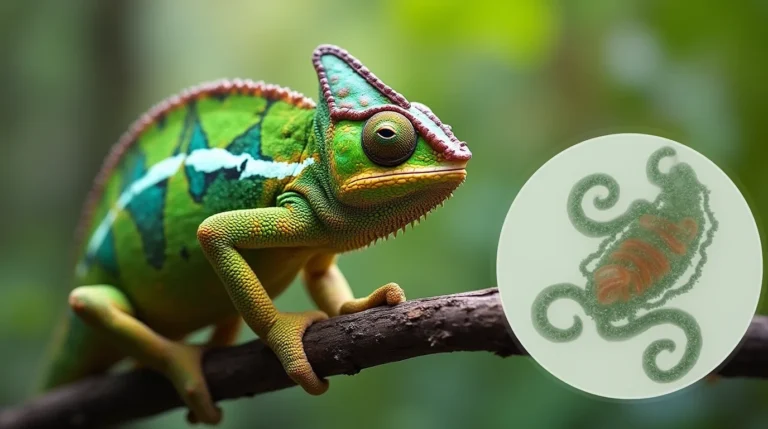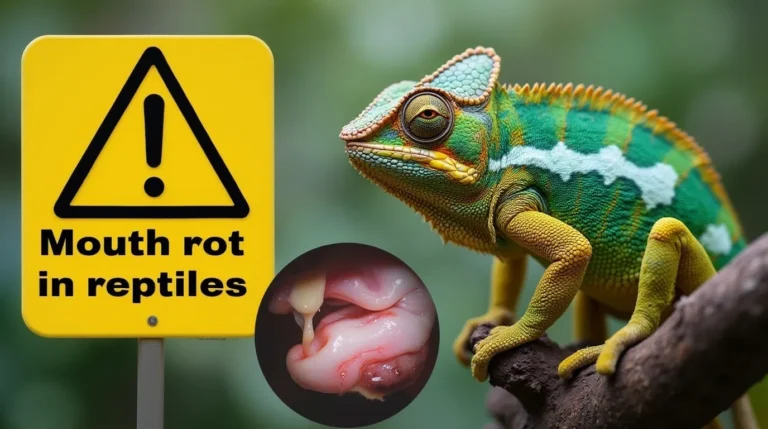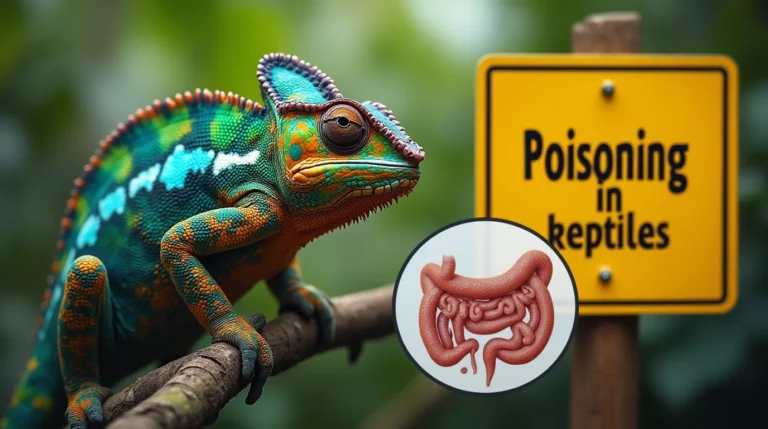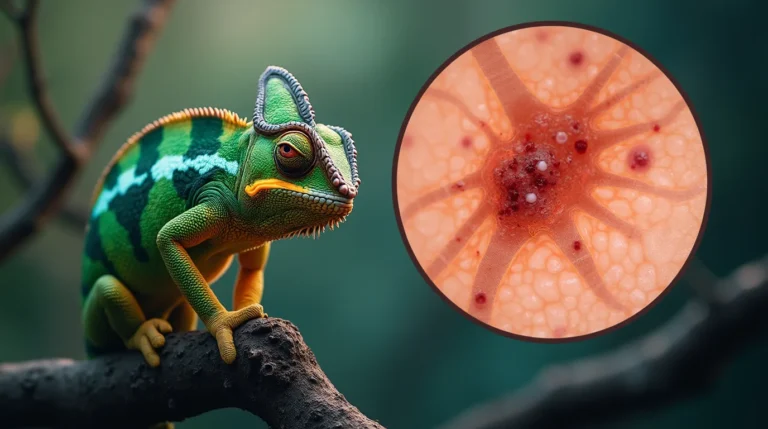Protect your reptile’s health! Learn the critical signs of Vitamin Toxicity in Reptiles 5 Signs of Overdose and Prevention Tips, prevention strategies, and expert care tips for responsible reptile owners.
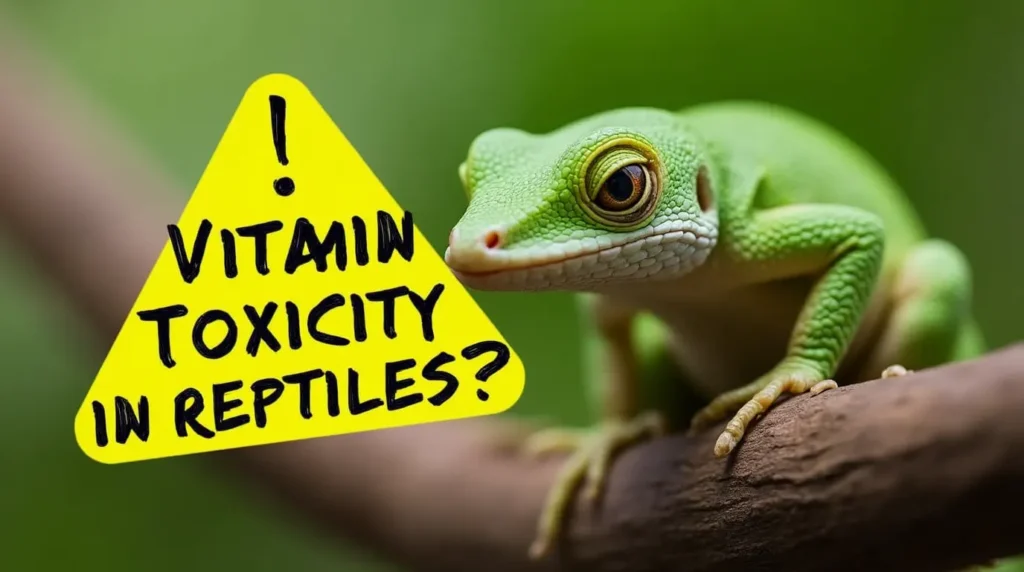
Table of Contents
Reptile owners are often passionate about providing the best care for their scaly companions, but an overlooked danger lurks in well-intentioned nutritional supplementation. Vitamin toxicity in reptiles is a serious and potentially life-threatening condition that can arise from overenthusiastic nutritional management. This comprehensive guide will explore the intricate world of reptile nutrition, helping you understand the delicate balance between essential nutrients and dangerous overdoses.
Vitamin toxicity occurs when reptiles receive excessive amounts of fat-soluble vitamins, particularly vitamins A and D, which can accumulate in their bodies and cause severe health complications. Unlike humans, reptiles have unique metabolic processes that make them especially vulnerable to nutritional imbalances.
Understanding Vitamin Toxicity in Reptiles
What is Vitamin Toxicity?
Vitamin toxicity is a condition where an excess of certain vitamins, particularly fat-soluble vitamins (A, D, E, and K), builds up in a reptile’s body, leading to potentially severe health consequences. Unlike water-soluble vitamins that can be easily excreted, fat-soluble vitamins are stored in the liver and adipose tissues, making them more likely to cause long-term damage.
The Most Common Culprits: Vitamins A and D
- Vitamin A Toxicity
- Primary cause of vitamin overdose in reptiles
- Commonly occurs through over-supplementation or inappropriate diet
- Can lead to significant organ damage and systemic health issues
- Vitamin D Toxicity
- Critical for calcium metabolism
- Excess can cause severe calcification of soft tissues
- Particularly dangerous in captive reptiles with limited natural sunlight exposure
5 Critical Signs of Vitamin Toxicity in Reptiles
1. Significant Weight Loss and Metabolic Changes
Symptoms:
- Rapid and unexplained weight loss
- Decreased appetite
- Metabolic disruptions
- Potential organ dysfunction
Potential Consequences:
- Liver damage
- Compromised immune system
- Potential long-term nutritional deficiencies
2. Dermatological and Skin Abnormalities
Observable Signs:
- Dry, flaking skin
- Abnormal skin texture
- Potential skin lesions or ulcerations
- Changes in skin coloration
Specific Vitamin A Toxicity Indicators:
- Thick, raised skin patches
- Reduced skin elasticity
- Potential secondary infections
3. Neurological and Behavioral Changes
Neurological Symptoms:
- Muscle weakness
- Tremors or uncoordinated movements
- Altered behavior patterns
- Potential seizure-like episodes
Potential Underlying Causes:
- Mineral imbalances
- Neurological inflammation
- Metabolic disruptions
4. Reproductive and Hormonal Complications
Reproductive Warning Signs:
- Reduced fertility
- Irregular egg production in females
- Decreased mating behaviors
- Potential developmental issues in offspring
Hormonal Disruption Markers:
- Endocrine system dysfunction
- Potential long-term reproductive challenges
5. Skeletal and Muscular Abnormalities
Skeletal Warning Signs:
- Abnormal bone density
- Potential deformities
- Increased fracture risk
- Muscle weakness and atrophy
Specific Vitamin D Toxicity Indicators:
- Calcification of soft tissues
- Joint stiffness
- Reduced mobility
Prevention Strategies for Vitamin Toxicity
1. Precise Supplementation Protocols
Recommended Approaches:
- Consult reptile nutrition specialists
- Use species-specific supplement guidelines
- Measure and track vitamin intake meticulously
- Invest in high-quality, veterinarian-recommended supplements
2. Balanced Dietary Management
Nutritional Recommendations:
- Offer diverse, species-appropriate diets
- Prioritize whole food nutrition
- Minimize processed supplement reliance
- Regular dietary assessments
3. Regular Veterinary Monitoring
Proactive Health Strategies:
- Bi-annual comprehensive health screenings
- Blood work to assess vitamin and mineral levels
- Professional nutritional consultations
- Early detection of potential imbalances
Recommended Pet Products on Amazon
- Repti-Calcium Supplement
- Zoo Med Reptivite Multivitamin
- Fluker’s Repta Boost Vitamin Supplement
- Herptivite Multivitamin for Reptiles
Frequently Asked Questions (FAQ)
Q1: How often should I supplement my reptile’s diet? A: Supplementation frequency varies by species. Consult a reptile veterinarian for personalized guidance.
Q2: Can I overdose my reptile with vitamins accidentally? A: Yes, over-supplementation is a common risk. Always follow professional recommendations and measure supplements carefully.
Q3: What are the first signs of vitamin toxicity? A: Watch for weight loss, skin changes, behavioral shifts, and reduced activity levels.
Q4: Are commercial reptile supplements safe? A: When used correctly and in moderation, most commercial supplements are safe. Always follow manufacturer guidelines.
Q5: How can I prevent vitamin toxicity? A: Maintain a balanced diet, use precise supplementation, and schedule regular veterinary check-ups.
Conclusion
Understanding vitamin toxicity in reptiles requires a delicate balance of knowledge, precision, and proactive care. By recognizing the signs, implementing preventive strategies, and maintaining open communication with veterinary professionals, you can ensure your scaly companion remains healthy and vibrant.
Call to Action: Have you encountered vitamin-related challenges with your reptile? Share your experiences and insights in the comments below! For more expert pet care guides, visit BlithePet and expand your reptile care knowledge.


